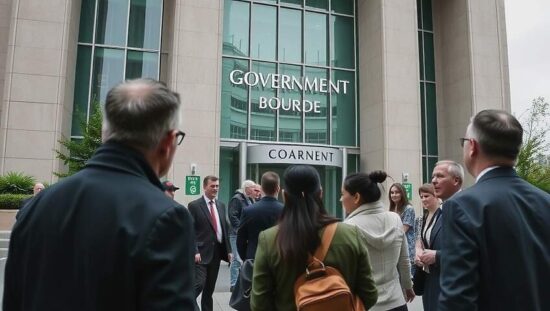A simmering debate over perceptions of safety and urban decay in Germany has escalated, with prominent figures clashing over proposed solutions and highlighting deep political fault lines. Following controversial remarks by Chancellor Friedrich Merz, who characterized criminal immigrants as damaging the “cityscape” a group of nine SPD parliamentarians recently introduced an eight-point plan intended to address underlying societal issues like homelessness, housing shortages and drug use. Notably, the plan conspicuously avoids specifically addressing the migration issue itself.
Achim Brötel, president of the District Administrators’ Conference, sharply criticized the SPD’s proposal for a “cityscape” summit convened at the Chancellery, dismissing it as an inappropriate response. Speaking to the Redaktionsnetzwerk Deutschland, Brötel, a CDU politician, argued that “subjective anxieties are best countered by objective action” emphasizing the need for a rights-based and consistent enforcement of the law rather than a high-profile summit.
Brötel’s stance reflects a growing pressure within the CDU to adopt a more assertive approach to immigration and law enforcement. He specifically called for “considerably more consistent deportations” including the repatriation of criminals and those deemed “potentially dangerous” even to countries like Syria and Afghanistan – a move previously considered politically sensitive and largely off-limits. He suggested such action would provide a genuine positive outcome from the increasingly fractious debate.
Adding another layer to the complexity, André Berghegger, Managing Director of the Association of Cities and Municipalities, underscored the need for a comprehensive suite of measures to ensure cities and towns remain safe, appealing and livable. Berghegger emphasized that the focus should be on enhancing the lived experience of citizens, pointing to factors like architectural integrity, vibrant restaurants, accessible shops and cultural amenities as critical to revitalizing city centers and local cores. He cautioned against prioritizing talk-shops, arguing that a return to fundamental civic well-being should be the ultimate goal.
The disagreement reveals a philosophical divide within German politics: whether addressing perceived societal problems requires large-scale discussions or a targeted, legally-sound enforcement of existing laws. The debate’s trajectory suggests a hardening of political positions and a potential shift in the rhetoric surrounding immigration and urban safety.





